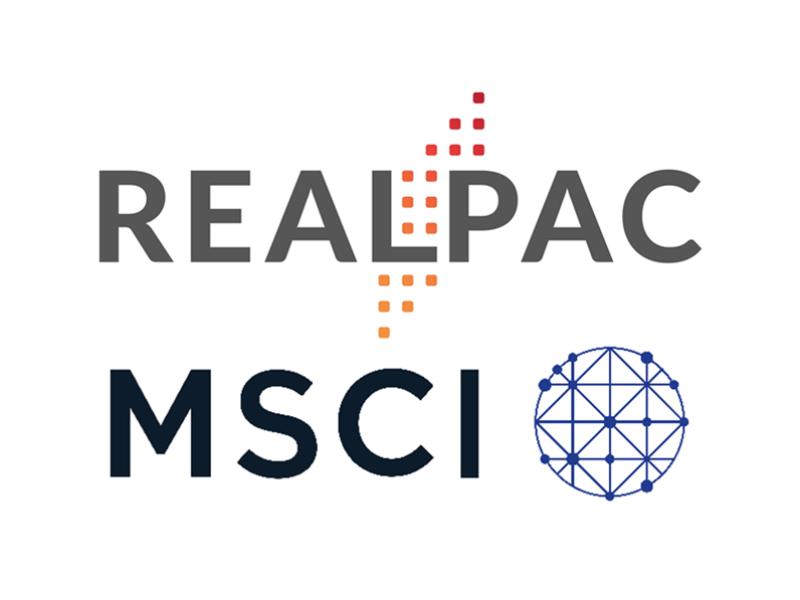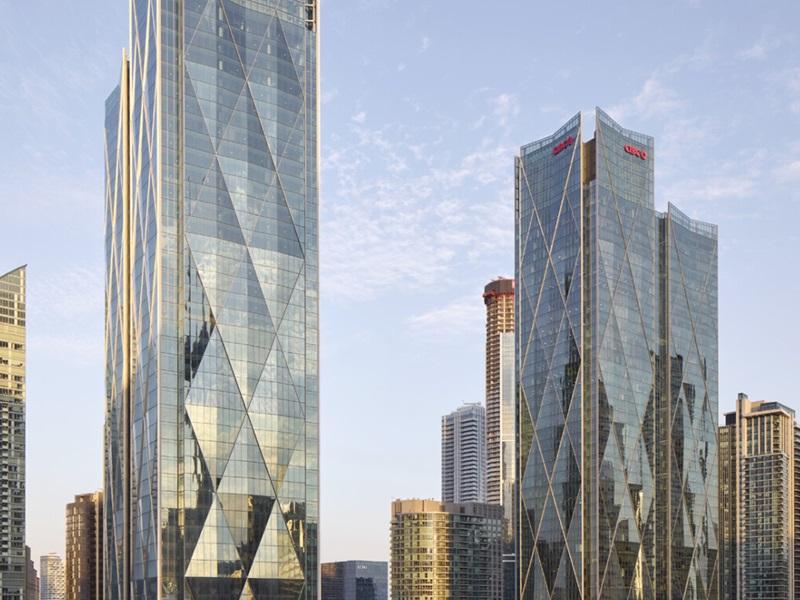
Europe has experienced high inflation and interest rates over the past 18 months. It also has the ongoing Ukraine-Russia war at its doorstep, among other geopolitical concerns.
So, attendees of the Nov. 28 Global Property Market conference at the Metro Toronto Convention Centre were interested in discovering how this affects the continent’s commercial real estate market.
Fiera Real Estate’s head of European real estate Charles Allen moderated a four-person discussion of key issues, challenges and opportunities faced by owners and investors.
“If you're buying an asset in the right location, and if it's been discounted by 30 or 40 per cent from when the market peak was, and if you feel you can push that forward, there can be some really compelling opportunities,” Allen explained.
“So for us as a house, we think over the next 12 months there will be a great buying window for opportunistic equity buys.”
Fiera has 330 properties valued at approximately $9.25 billion under management in Canada and Europe.
It is wholly owned by Montreal-based Fiera Capital Corporation, an independent global asset management firm with more than $156.2 billion of AUM.
DWS Group
Jessica Hardman, the head of European real estate portfolio management for DWS Group and also CEO of its U.K. division, said property valuations have decreased over the past 12 to 18 months.
However, during the past two months she’s started to see interest from Asian investors in European real estate.
Hardman thinks the U.K. real estate cycle is close to its lowest point. She expects to see this happen sometime next year, but won’t be able to say for sure until there have been several quarters of stable interest rates.
“I think there’s a great opportunity moment for investors who may have found it difficult to access the urban logistics market because a lot of the big logistics REITs are not so active at the moment for lots of reasons,” said Hardman.
“They previously would have crowded out any international investor in that space.”
DWS has approximately $1.28 trillion of AUM in Europe, the Americas and Asia across multiple asset classes, including about $100 billion in real estate.
Hardman does foresee acquisition opportunities while most investors are staying away.
“We're seeing from our occupation base that they want to be in central London or central Manchester, or in Berlin or Paris, where there's a community where they can live, where there’s good transport and where residences are close to schools,” Hardman observed.
DWS has about €1.5 billion available to spend in Europe and isn’t using debt at the moment. Hardman said it will use its equity and then look to refinance some assets in a couple of years if interest rates move lower.
Hardman likes the multifamily sector in European countries where there’s traditionally been high home ownership.
“People can't get mortgages and they’re crowding into the rental space and that's going to continue for quite some time,” she said.
“Not enough is being built and the planning takes ages. All of those are big levers for performance.”
Areim
Dietrich Heidtmann joined Areim — an independent Nordic property owner and fund manager — as head of global capital formation in May.
The Stockholm-headquartered firm owns and develops real estate and companies across the Nordic region within the light industrial, residential, office, retail and data centre sectors. It has approximately €4 billion in assets under management.
Heidtmann said Areim raised a fund in January and still has half its equity as dry powder. It also has money available for its data centre strategy.
While Sweden, Finland, Norway and Denmark account for about four per cent of Europe’s population and six per cent of its GDP, Heidtmann said they combine to represent about 21 per cent of the continent’s real estate market.
Heidtmann confirmed investors are expressing interest in real estate in those countries and expects that to continue as most asset classes remain extremely solid.
“These Nordic countries are very much trust-based and relationship-based countries and, when it comes to the listed real estate market, everyone kind of owns a piece of everyone else,” Heidtmann said.
“So it's actually a grid that supports itself.”
There have been recent transactions where platforms sold at, or even at a small premium to, book values, Heidtmann added.
Areim has a value-add profile and is underwriting deals in several sectors. While it’s staying away from retail, it’s actively bidding on office assets, residential and light industrial development sites.
“We're trying to reflect what the competitive situation is for the different assets that we're competing for, but we're not fishing for distress,” Heidtmann said.
“We're probably opportunistic in terms of being open to all kinds of opportunities, but we’re really value-add when it comes to how we underwrite our deals. And in times like these, we’re emphasizing the downside as much as the upside potential.”
Heidtmann believes there’s a lot of growth potential for Nordic data centres due to green energy use, available land, cooler temperatures, well-developed energy grids and data highways, and the growing impact of regenerative artificial intelligence.
Brookland
Nassar Hussain is founder and partner at Brookland, a real estate investment banking firm that has provided independent and specialist advisory services and capital raising solutions in Europe since 2009.
Hussain said there’s a refinancing gap in European real estate estimated at €90 billion. This has created stress in the system and caused a flight to quality where banks are focused on the best sponsors and deals.
“There's actually quite extreme liquidity chasing those deals that have very tight yields, but that's not the case for the rest of the market,” Hussain said. “So at times like this, alternative lenders really come to perform.
“It's been a great opportunity for debt funds to deploy and, from a risk-reward perspective, they're generating far higher returns for probably the same or less risk than they were.”
Not surprisingly, there are issues involving lenders and the office sector and some borrowers are being pressured to sell assets.
“We're seeing substantial drops in value where it's very difficult to negotiate a restructuring or where sponsors feel that they can't actually support the deal,” Hussain said.
“Based on the transactions we're seeing, it's very difficult to see how we're not going to see more distress next year.”
Slate Asset Management
Peter Tsoulogiannis is a partner at Slate Asset Management, a global investment and asset management firm that has $13 billion in AUM.
Though headquartered in Toronto, about two-thirds of Slate’s business is in Europe and the U.S.
Slate has a major presence in Germany and is also active in Nordic countries, and is quite focused on grocery-anchored and essentials-based retail assets.
“Valuations in a higher-interest-rate environment are lower, the question is how much lower and what is going on with the underlying real estate fundamentals,” Tsoulogiannis said, noting fundamentals remain good in many asset classes.
The base interest rate in Europe is three per cent versus 5.5 per cent in the U.S., so the funding gap isn’t as large.
“This year we’ve bought over a billion euros of real estate within Europe,” Tsoulogiannis said, “and we can do that with positive leverage at valuations that may be 30 to 40 per cent off where they were before.
“The operating fundamentals were great, it was just the capitalization change, and the banks are willing to step in to finance that.
"We've been able to raise capital and deploy it, so we very much see an opportunity in Europe on the equity side — more so than we do in the U.S.”










